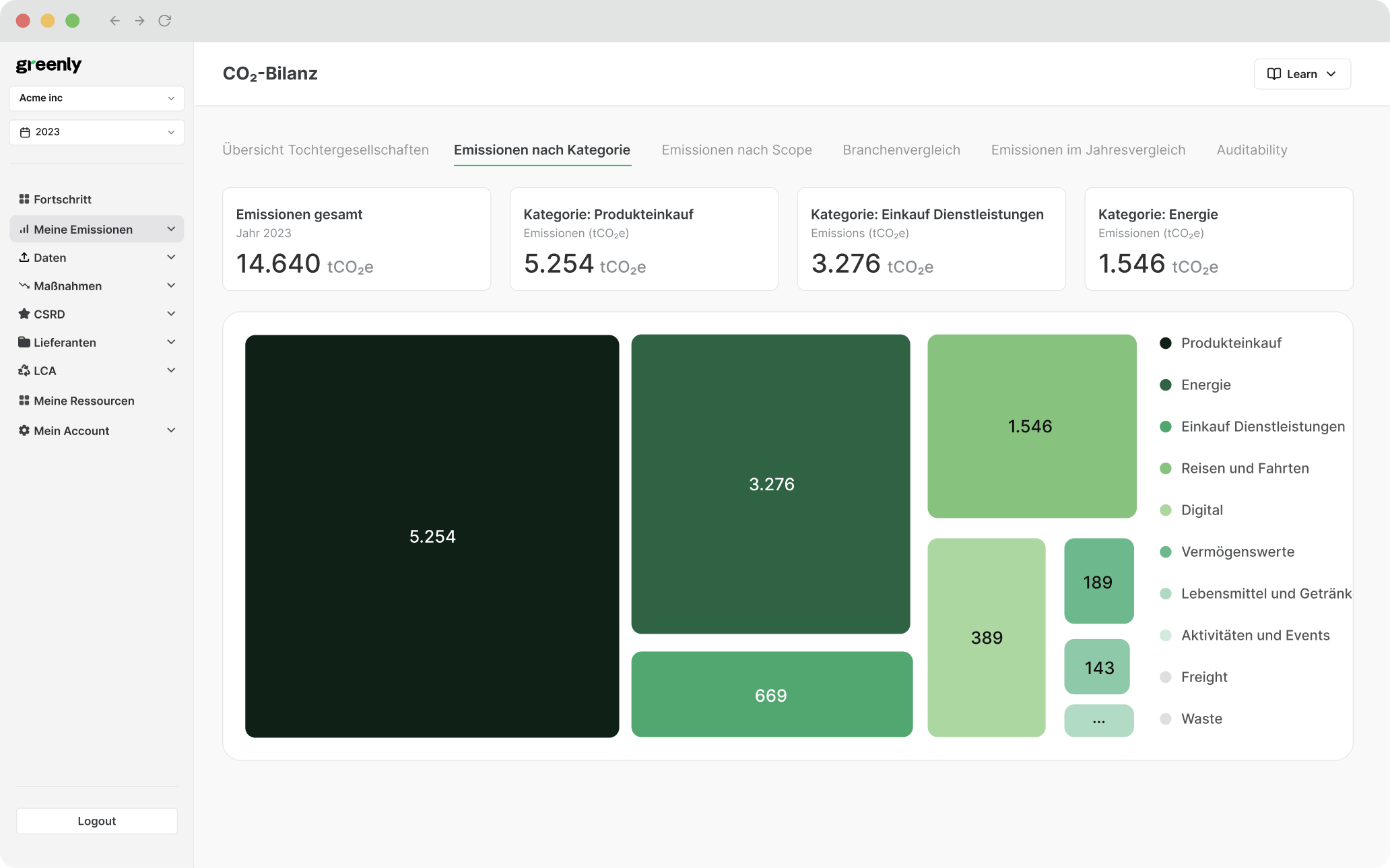
What are the 3 Pillars of Corporate Sustainability?
In this article, we'll explore what the 3 pillars of corporate responsibility are, why they're important, and how businesses can turn them into practical action.
ESG / CSR
Industries



Joining the long list of different sustainability directives in the EU, the CS3D will ask companies operating both inside and outside of the European Union to demonstrate their responsibility and efforts to protect the environment, society, and their suppliers.
What is the Corporate Sustainability Due Diligence Directive, how is it different from other sustainability reporting directives within the European Union, and how can the CS3D help to promote sustainability across the globe?
In this article, we'll explain how the CSDDD can help to build responsible business conduct, improve relationships between business partners, and help both EU companies and non EU companies better their own operations.
The CSDDD, or the Corporate Sustainability Due Diligence Directive, is a new directive reporting requirement that will strive to instill more sustainable and responsible practices.
The CS3D was drafted originally due to stakeholder calling for more improved rules regarding exercised diligence within company operations – hence the name the Corporate Sustainability Due Diligence Directive.
The CSDDD is interconnected with other European parliament directives to improve value chains and encourage supervisory authorities to rectify the environmental impact of their franchising or licensing agreements in scope companies for EU member states – such as by coinciding with the Sustainable Finance Disclosure Regulation (SFDR), the Corporate sustainability Reporting Directive (CSRD).
If your company operates within the European Union (EU), your company will be required to comply with the CS3D when the final agreement is made. In fact, member states and countries of the EU will be asked to integrate the CSDDD into their national legislation – but this doesn’t make the CSDDD a unique facet to countries in Europe. The CS3D can serve as a viable guideline for any business in any country trying to be more sustainable.
Here's a table breaking down the difference between these different EU corporate sustainability policies
Differences between environmental due diligence obligations:
| Directive/Regulation | Corporate Sustainability Due Diligence Directive (CSDD) | Sustainable Finance Disclosure Regulation (SFDR) | Corporate Sustainability Reporting Directive (CSRD) |
|---|---|---|---|
| Purpose | To ensure companies operate responsibly by identifying, preventing, and mitigating adverse human rights and environmental impacts throughout their supply chains. | To improve transparency in the market for sustainable investment products, preventing greenwashing and ensuring that investors have the information they need to make informed decisions. | To enhance and standardize sustainability reporting for companies, ensuring that stakeholders receive reliable and comparable information on sustainability performance and impact. |
| Scope | Applies to large EU companies and non-EU companies operating within the EU that meet certain size thresholds and turnover criteria. | Applies to financial market participants and financial advisors in the EU, including asset managers, institutional investors, and insurance companies. | Applies to large EU companies and listed companies, including non-EU companies with significant operations in the EU. |
| Key Requirements | Companies must conduct due diligence to identify, prevent, and mitigate adverse impacts on human rights and the environment; implement grievance mechanisms; and report on due diligence activities. | Financial entities must disclose information on how sustainability risks are integrated into their investment decisions and the likely impacts of sustainability risks on the returns of financial products. | Companies must provide detailed reports on sustainability matters, including environmental, social, and governance (ESG) factors, and how these affect their business and financial performance. |
| Implementation Date | Expected to be enforced from 2025 onwards. | Entered into force on March 10, 2021, with various disclosure requirements phased in over time. | Applies from the 2024 financial year for large companies, with some requirements starting earlier or later depending on company size and type. |
| Impact | Aims to improve corporate accountability and sustainability, reduce human rights violations and environmental harm, and promote ethical business practices globally. | Enhances transparency and accountability in the financial sector, promoting sustainable investment and reducing the risk of greenwashing. | Increases transparency and comparability of sustainability information, helping investors, consumers, and other stakeholders make informed decisions. |

Currently, the CSDDD is going to affect the following companies:
Companies incorporated within the European Union who have:
Companies that aren’t incorporated within the European Union who have:
Therefore, it is important to note that U.S. companies and other multinational enterprises operating within the EU with branches making more than this designated amount will still be subject to the CS3D and its due diligence process – even if the national law is based under the EU's corporate sustainability policies.
Companies or organizations that meet these requirements will be required to demonstrate human rights and their environmental efforts across their business practices.
However, the penalties for companies that neglect to adhere to the CS3D are likely to remain the same.
If companies fail to comply with the CSDDD, penalties will be issued in addition to other negative repercussions. Companies will be subject to a fine and subsequent legal action that could ruin the reputation of their business, ultimately impacting future business success. Also, companies who fail to comply with the CS3D will be required to submit additional reports on their companies operations, environmental impacts, and other management systems – as civil liability may come into play for cases where being proactive and adhering to the CS3D could have prevented other damages.

The Corporate Sustainability Due Diligence Directive (CS3D) will impact U.S. companies that operate within the European Union or have substantial business relationships with EU entities and other regulated financial undertakings.
Here are the key ways in which the CS3D will affect U.S. companies:

The CSDDD and CSRD are both reporting directives initially established within the European Union (EU) or European Economic Area (EEA). While both of the reporting directives are aimed to improve sustainability and transparency within businesses across the EU, they aren’t both exactly the same.
The CSRD, or the Corporate Sustainability Reporting Directive, is a reporting framework aimed at encouraging companies to report their sustainability activities relevant to their company – whereas the CS3D is more concerned with implementing mandatory due diligence within companies, specifically garnered towards monitoring their impact towards their supply chains, the environment, and human rights.
Both the CS3D and the CSRD require companies to report various activities related to sustainability and improving transparency, but they approach this goal by demanding different information in each directive. However, both the CSRD and the CSDDD make use of the United Nations Guiding Principles of Business and Human Rights (UNGPs) and the OECD’s guidelines for multinational companies.

Generally, the requirements for the CS3D will cover five main areas. These include the following:
Companies should demonstrate their due diligence by identifying and preventing risks – both with the environment and society. and prevent environmental and human rights risks. Examples of this may include analyzing the impact of business operations on the company’s supply chain, the environment, or basic human rights.
Risk management is one of the keys to cultivating greater sustainability, making it a primary component for the Corporate Sustainability Due Diligence Directive (CSDDD).
Companies should make an effort to identify and address risks found whilst conducting due diligence. Examples of this could include creating new policies and methods to identify risks or engaging with suppliers to address issues proactively.
Transparency is another one of the most pivotal elements to creating a more sustainable business, meaning companies required to adhere to the CSDDD should seek to be more transparent regarding their due diligence processes and make their reports available to the public.
This can be done by publishing an annual sustainability report or sharing information regarding their efforts to protect the environment and humanity on their company website.
Transparency and public reporting both have something in common: good communication within business operations. Companies required to comply with the CSDD should develop ways to facilitate better communication between employees and stakeholders so that the company can address discrepancies within business operations that may otherwise go unnoticed unless reported by internal workers witnessing these operations first hand.
Some ways that companies could implement this are by setting up a hotline or email to report poor or inefficient business conduct or encouraging HR to develop a better system to address current and future concerns within the workplace.

Some may wonder why or how CS3D would relate to third parties or suppliers involved with your company – but they do. This is because third parties and suppliers play a huge role in both external and internal risks. With the CSDDD, companies will be required to conduct due diligence regarding their suppliers to further determine the potential risks correlated to environmental or human rights.
Demonstrating due diligence under the CS3D could be done by:
Reporting directives aimed at cultivating greater sustainability and transparency in the market such as the Corporate Sustainability Due Diligence Directive (CSDDD) hold a decent chance at helping to encourage improved worldwide sustainability practices. This is because sustainability regulations and reporting directives can provide the incentive necessary to make business make the changes needed to adhere to cultivate greater worldwide sustainability.
Most companies will find it harder to implement the tactics necessary to achieve greater sustainability by themselves, but a reporting directive like the CSDDD can make it compulsory and result in more sustainable practices becoming the norm.
Specifically, conducting due diligence can help to cultivate sustainability in ways that other reporting directives or methods may not. This is because implementing a due diligence framework like the CS3D causes companies to address their ESG risks within both their business operations and their supply chains.
The CS3D could result in the following, if eventually implemented worldwide:
Ultimately, the CSDDD has a long way to go before it reaches every corner of the Earth – but it is important to remember that any environmental regulation or reporting directive will require the cooperation of everyone involved. The CS3D may be a requirement, but if stakeholders and companies don’t make an effort to comply – it may never live up to its full potential.
If reading this article about the Corporate Sustainability Due Diligence Directive, or the CS3D, has made you interested in reducing your carbon emissions to further fight against climate change – Greenly can help you!
Understanding international and domestic sustainability standards can be hard to keep track of, but don’t worry – Greenly is here to help. Book a demo with one of our specialists to learn more.
Greenly can help you make an environmental change for the better, starting with a carbon footprint assessment to know how much carbon emissions your company produces.
